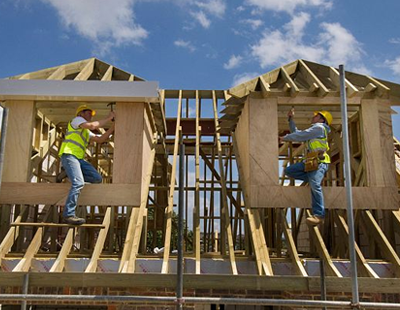You have to feel for Rishi Sunak - well, at least a little.
Leave to one side that he carries more presentational skills, authority and dignity than his boss - which must be galling for a man who only became Chancellor because Boris Johnson clashed with his first choice for the job, who then walked out.
On top of that, Sunak is also in an impossible position with his measures to alleviate the worst economic impact of the coronavirus. He’s damned if he does, damned if he doesn’t.
The summer statement he delivered in the Commons was a case in point.
He gave a clue that he knows how impossible his position is. The part of his speech when he confirmed the wind-down of the furlough scheme included references to saying that he knew that no extension would be enough for many - “if I extended until October, people would want November…if I extended until November, they would demand December.”
He has a point.
One has to wonder, therefore, what will happen when the new sub-£500,000 stamp duty holiday draws to a close at the end of March.
No one can tell the future but when Sunak laces his speech with frankly apocalyptic phrases suggesting the country faces “profound challenges" and says "although hardship lies ahead, no one will be left without hope” - well, you get the impression that this is an economic tsunami making waves well beyond next spring.
So it is with respect for Sunak and his dilemma, rather than criticism or cynicism, that I wonder whether he has got this stimulus right: or, more precisely, whether this is only part of what should have been a more far-reaching stimulus.
Should it have been more substantial, like a complete abolition of stamp duty?
Should it have been more nuanced, with a phased ending to avoid a likely completions rush in the first quarter of 2021?
Should it have been two-pronged, with measures to improve mortgage availability for first-time buyers?
Should it have been addressing supply, with more incentives for new homes to be built by councils and social landlords as well as private developers?
Should it, should it, should it?
As Sunak suggests, he knows he’s damned if he does and damned if he doesn’t, and criticism of what he has done is easy.
My personal sense is that mortgage guarantees on higher loan-to-value mortgages to help first-time buyers get on the ladder would have been useful alongside the stamp duty cut - plus an ambitious council house-building programme to boost the affordable rental stock.
Such suggestions may raise eyebrows about cost, but big numbers are everywhere now and we have a government with a spend and debt record Jeremy Corbyn could only have dreamed of: the UK’s deficit is expected to reach 18 per cent of national income later this year, which is twice the size of the deficit at the depth of the financial crisis 12 years ago.
So Sunak should, perhaps, have done more to stimulate the property market in a way that would have been longer lasting and more fundamental, if less headline-grabbing.
But he has tried, and politicians of all colours having to form or propose policy at this most unexpected and unpredictable of times deserve to be cut a little slack. A much bigger test for them, and us, lies ahead in the months and years to come.
Let’s hope Sunak’s apocalyptic comments were melodramatic: if not, then by next March the ending of a stamp duty holiday may be the least of our worries.
*Editor of Estate Agent Today and Letting Agent Today, Graham can be found tweeting about all things property at @PropertyJourn

















%20-%20IMAGE%20Client%20Accounting%20%E2%80%93%20what%20are%20your%20options.jpg)


.png)
.png)
.png)
%20(002).png)






%20(002).jpg)












Join the conversation
Jump to latest comment and add your reply
Actually Graham I think you’ll find he has already hinted that permanent Stamp Duty reform is coming and if I read him right it will be announced on or before the deadline, interesting to speculate on what it will be 🤔
As usual, the UK Government has done something short-term for political effect without understanding the fundamentals. This is bound to lead to “UNINTENDED” CONSEQUENCES &, probably, the long-term ERODING OF THE TAX BASE + higher house prices.
The political objective is to look pro-active & to be seen to be helping 1st time buyers & “ordinary” voters.
At least, having trailed the idea, they implemented it quickly. Just talking of SDLT reductions leads to MARKET PARALYSIS as buyers wait…
The latest measure is big & will lead to a RE-PRICING, which will have different effects in different SUB-MARKETS (North/South, London/regions, old/young owners, large/small houses, 1st time buyer, investment, buy-to-let etc).
The HOUSING STOCK remains exactly the same though, so putting more money into the pockets of purchasers will RAISE PRICES, compounded by a buying frenzy & ULTRA LOW INTEREST RATES. Middle Class 1st time buyers will clamour to extract funds from the bank of Mum & Dad (the UK’s 5th largest mortgage lender).
Rising prices is a free WEALTH TRANSFER to existing owner,s who are actually the true beneficiaries of the tax cut.
The next problem will be the EXIT STRATEGY. Any attempt to end the “holiday” will be met by industry & political resistance as vested interests will have built around the new status quo. If the measures are reversed, there will then be an inflationary frenzy in the final days & a MARKET COLLAPSE afterwards. Then what?
Markets generally rise gradually up the stairs but can fall suddenly down the lift shaft! The upside risk is small but the downside risk is large.
Never waste a crisis!! This one has been wasted. The opportunity was there to do something really good. This could have been a full package: remove the market distorting “CLIFF EDGES” in the tax system, switch to a seller-pays system, add higher Council Tax bands instead to annually tax £1m+, 2nd, larger, empty, investment etc houses…
During Lockdown I had predicted that completions in 2020 were likely to be 200,000 less than in 2008, the year of the global banking crisis.
So around, 600,000 completions down from 1.1M in 2019. It will be interesting to see if the stamp tax holiday will create more sales, if it does then of course the amount of completions will be far higher than I had predicted, prior to government intervention.
Clouds on the horizon are also that unemployment may start to play into the housing market sooner than later. On balance I take my hat off to the chancellor, but my biggest fear and I saw it in 1988, when I was an agent selling property, there may be a stampede to buy.
But, as March is the end date for the stamp duty holiday and it takes on average 18 weeks for a sale to go through, it means that if there is a bounce in the market it will be until Christmas, as after that time there will not be the 'time' to get transactions 'completed.'
The result a sharp spike in sales agreed, with usually house price inflation, followed by a very protracted period of fewer sales, usually with sale prices on the decline. Time will tell.
Please login to comment